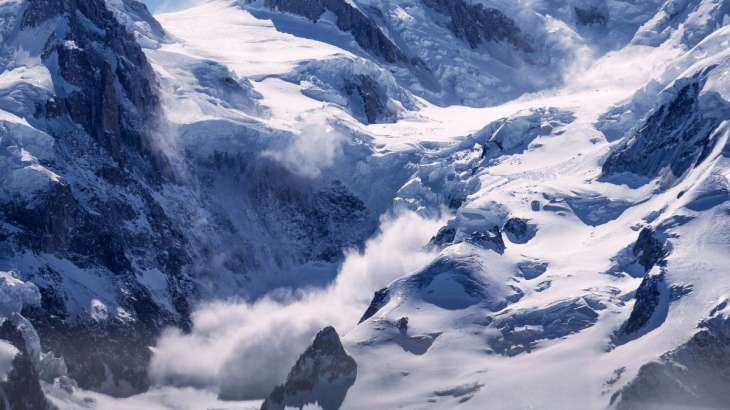
A snow avalanche in northern Pakistan killed 11 people, including a 4-year-old boy, and injured 25 people from a nomadic tribe as they were crossing a mountainous area with their goat herd on Saturday. According to the police, nomads were hit by an avalanche in the Chambeli area of Shantor Pass, which connects Astor district of Gilgit Baltistan region with the bordering Azad Kashmir region.
Gilgit Baltistan senior police officer Ziarat Ali said the dead included four women and a four-year-old boy. Ali said the nomads were taking their herd of goats from Azad Kashmir’s Kel area to Astor when they got trapped in an avalanche in the morning.
Tufail Mir, a deputy police chief in the region, said rescue teams were facing problems reaching the avalanche-hit area and soldiers were helping local authorities.
A rescue operation involving two military helicopters encountered rough terrain at an altitude of about 14,000 feet (4,270 m) above sea level. Ali said the bodies of the dead and injured were taken in ambulances five kilometers (three miles) away. Eyewitnesses said that local residents joined rescuers in evacuating the victims.
Prime Minister Shahbaz Sharif expressed grief over the casualties in a statement and directed authorities to provide the best possible medical treatment to the injured. Gilgit Baltistan Chief Minister Khalid Khurshid has declared a state of emergency in hospitals in the region’s main cities Gilgit and Skardu.
climate change in pakistan
Gilgit Baltistan, sometimes called the land of glaciers, has seen frequent avalanches and avalanches in recent years due to climate change. According to the United Nations, glaciers in Pakistan’s northern mountain ranges are melting rapidly due to rising temperatures, resulting in the formation of 3,044 glacial lakes in Gilgit Baltistan and Khyber Pakhtunkhwa provinces. Pakistan is one of the 10 countries that are at high risk of natural disasters due to climate change.
The country faced flash floods in the summer of 2022 that killed over 1,700 people and affected 33 million. Climate experts say floods and avalanches are becoming more common in Pakistan due to delayed snowfall in April instead of the previous climate pattern of December and January. The latter phenomenon does not allow the layers of ice to pack tightly and crystallize into solid glacial ice. Thereafter, the glaciers are melting due to rising temperatures in May and June.
(with inputs from agencies)